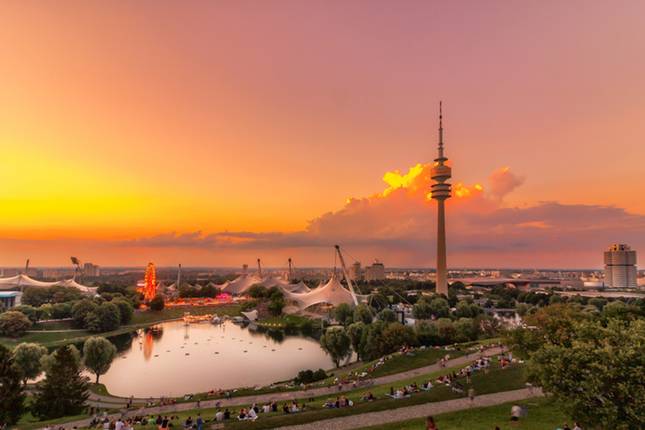


Experience Bavaria
One of the most beautiful parts of Germany, Bavaria is full of cities, mountains, forests, lakes, and free-spirited personalities! Explore castles, palaces, and onion-shaped domes under a lovely, white-blue sky. Discover Bavaria's extraordinary natural beauty and rich history. And meet the wonderful locals who create the perfect balance between being innovative and staying true to their traditions.
Experience all this and more in Bavaria!

Bavaria for Beginners…with Bavaria’s insiders
The Highlights


Castles & Palaces
Bavarian Fairytale King Ludwig II was a visionary who was ahead of his time in many ways. His innovative and novel ideas are reflected in many elements of his castles and palaces.
His magnificent royal buildings still shape the landscape to this day.
Bavarian Essentials
The Location
Located in the southeastern part of the country, Bavaria is Germany’s largest state.
Capital City
Home to the world-famous Oktoberfest, Munich is the state capital of Bavaria.
Main Airport
The main airport in Bavaria is the Munich International Airport (MUC).
Currency
The euro (EUR) is the national currency. ATMs are available throughout the region.
Electricity
Germany operates on a 230V/50Hz supply voltage. Because the U.S. standard is 120V, you may need an adaptor to avoid frying your electronics.
Emergency Calls
In case of an emergency, please dial:
# 110 for the police
# 112 for an ambulance or the fire department
When to Visit


Visit Responsibly
Traveling responsibly means respecting the communities, culture, and environment of the places you visit. Keep these helpful tips in mind when traveling to Bavaria:
Go green. Be environmentally conscious on the road by taking short showers; turning off the lights in your hotel room when you leave; and resisting the urge to collect any plants, seashells, or other natural flora.
Respect cultural differences. Before traveling, read about the local culture and customs – perhaps even learn a few basic phrases in the local language.
Support local businesses. Enjoy a more authentic experience and directly support the local economy by traveling with a local guide, eating in local restaurants, buying from local artisans, and staying in locally-owned and operated accommodations.
Wherever possible, avoid single-use plastics. Pack reusable items such as your own shopping bags, utensils, and a water bottle.Sustainable Tourism in Bavaria
Recycle, reuse, and eliminate waste
Thanks to its world-class waste recycling system, Bavaria (and Germany as a whole) offers plenty of opportunities for locals and tourists alike to help keep our environment clean. In fact, household trash is sorted into different colored bins (for example, blue bins are for paper products) and you can even get money back when you return some cans and plastic bottles to the supermarket.
Alternative modes of transportation
With more than 200 long-distance bicycle paths and public transportation at every corner, Germany is making strides in encouraging fossil fuel independence. Enjoy incredible bike paths and timely public transportation in Bavaria.
Bio hotels and ecotourism
Due to the rising demand for ecotourism and sustainable travel, there are many wonderful eco-friendly accommodation options in Bavaria. For example, bio hotels (which maintain the highest standards in various areas ranging from serving organic food to only using natural cosmetics) are located throughout the region.
Bavaria Adventures
Frequently Asked Questions
Do I need a visa to visit Bavaria?
Because Bavaria (Germany) is part of the Schengen zone, most travelers can visit without a visa. However, if you would like to double-check, we have a helpful link that will enable you to see if you require a visa through our visa partner, Sherpa.
What is the internet access like?
Internet and wifi are widespread throughout Bavaria and are usually free in accommodations, food venues, tourist information centers, and sometimes even buses. Enjoy the trip of a lifetime in Bavaria and easily stay connected!
Can I book a Bavaria adventure on TourRadar?
Of course! With the largest selection of multi-day adventures around the world, TourRadar is the perfect place to find your Bavaria adventure. From hiking and biking to a once-in-a-lifetime Oktoberfest experience, you'll find everything and more!
Do you tip in Bavaria?
Tipping is common in Bavaria. However, unlike the customs in North America (where the tip is generally between 15-25%), people in Germany either round up the bill to the next euro or simply add a couple more.





















